Termite Letter: Key Importance Unveiled
Did you know that termites cause over $5 billion in property damage each year in the U.S. alone? I understand the anxiety that comes with discovering these pests in your home. A termite letter can be a game-changer for homeowners. It serves as proof that your property has been inspected for termites and, if necessary, treated.
This document is vital when buying or selling a home. It ensures peace of mind and protects your investment. In this post, I’ll break down everything you need to know about termite letters. From what they include to how they can save you money, I’ve got you covered. Let’s dive into the details and arm ourselves against these destructive pests.
Understanding a Termite Letter

Definition
A termite letter is a document that indicates whether a property has been inspected for termite activity. It details any current infestations, damage, or signs of previous problems. This letter is essential in real estate transactions. Buyers often require it before closing a deal. It provides peace of mind regarding potential termite issues.
Other Names
Termite letters are also known as Wood Destroying Inspection Reports (WDIR). These terms can be used interchangeably. They serve the same purpose: to inform stakeholders about the condition of the property concerning termites. I have seen various forms of these reports, and they all aim to clarify any risks involved with termite infestations.
Importance in Real Estate
These letters play a crucial role in assessing property conditions. A termite clearance letter confirms that no active infestations exist at the time of inspection. This assurance can significantly enhance a property’s value. Buyers often feel more secure knowing that professionals have evaluated the home for possible termite damage.
In some cases, sellers may need to provide proof of a current termite contract. This contract outlines ongoing treatment and prevention measures against new termite infestations. Such proactive steps demonstrate responsibility and care for the property.
Inspection Appointment
A termite letter inspection appointment is necessary for obtaining this vital document. Homeowners or potential buyers should schedule an appointment with a licensed termite inspector. The inspector will examine the property thoroughly for any signs of termite activity or damage.
During my inspections, I learned that inspectors look for specific indicators. They check wooden structures, crawl spaces, and even the exterior of homes. Their findings will determine whether a termite clearance letter can be issued.
Assessing Property Conditions
Termite letters are crucial tools for assessing property conditions. They help identify existing termite problems and potential risks for future infestations. Without this information, buyers might face unexpected expenses later on due to undetected damage.
A thorough inspection can reveal hidden issues that may not be visible at first glance. For example, termites often hide within walls or under flooring, causing significant structural damage over time. Having a clear understanding of these risks allows buyers to make informed decisions.
Purpose in Property Transactions
Buyer Protection
Termite letters play a crucial role in protecting buyers from potential infestations. These documents confirm whether a property has had any issues with termites or other wood-destroying organisms. Buyers can make informed decisions based on this information. I remember my own home-buying experience. The termite letter provided peace of mind, knowing that the property was free from significant pest problems.
Without a termite letter, buyers risk investing in properties that may have hidden damages. Termite infestations can lead to costly repairs and severe structural issues. A buyer who receives a negative report may choose to walk away or negotiate for repairs before closing the deal.
Seller Disclosure
Sellers use termite letters to disclose property conditions effectively. Providing this document demonstrates transparency and good faith in real estate transactions. It helps sellers avoid potential legal issues related to undisclosed pest problems. If a seller fails to provide this letter and an infestation is discovered later, they could face lawsuits or claims for damages.
In my view, being upfront about any past termite issues can enhance a seller’s reputation. It builds trust with potential buyers and can facilitate smoother negotiations. Sellers who present a clear termite history often find it easier to close deals without complications.
Negotiation Tool
Termite letters also serve as important negotiation tools during property sales. A positive letter can strengthen a seller’s position in negotiations. Buyers feel more secure knowing there are no current pest issues, which may lead them to offer a higher price.
Conversely, if the letter indicates previous infestations or treatments, buyers may ask for concessions or repairs. This dynamic can significantly affect the final sale price. I’ve seen how negotiations shift based on these letters; having one can either solidify a deal or open up discussions for further adjustments.
Legal Compliance
Many states require termite inspections before closing on real estate transactions. This requirement underscores the importance of termite letters in ensuring compliance with local laws. A buyer may need this document to secure financing or insurance for the property.
Failure to obtain a termite letter can lead to delays in closing or even derailing the transaction entirely. Understanding these regulations is essential for both buyers and sellers alike.
Key Components of a Termite Letter

Property Details
A valid termite letter begins with specific information about the property. This includes the address, owner’s name, and the date of inspection. These details ensure clarity and accountability. A licensed termite company usually conducts the inspection. They provide a thorough examination of the premises.
I find it essential to have accurate property details. It helps in tracking any future inspections or treatments effectively.
Inspection Results
The termite inspection report contains critical findings from the evaluation. Inspectors note signs of current infestations or previous termite activity. They also assess conditions that may lead to infestations. This includes moisture levels and wood damage.
Visual aids enhance understanding. Diagrams indicating infested areas can be very helpful. Photos showing damage can provide context for buyers or homeowners. These elements clarify the severity of any issues found during the inspection.
Treatment History
A comprehensive termite letter outlines treatment history as well. It includes past treatments, dates, and methods used. This information is crucial for evaluating ongoing risk and planning future actions.
Recommendations for termite control are often included in the letter as well. These suggestions may involve professional treatment or preventive measures like regular checks. I appreciate when these recommendations are clear and actionable. It makes following up on necessary steps easier.
Recommendations
Recommendations help homeowners understand how to prevent costly termite damage. They might include advice on maintaining proper drainage or reducing wood-to-soil contact. Licensed termite inspection operators often suggest regular inspections to catch issues early.
These recommendations form part of a proactive approach to termite management. I believe that following through on these suggestions can save homeowners significant money in the long run.
Visual Aids
Visual aids play an important role in termite letters too. Charts showing treatment timelines can illustrate how effective certain methods have been over time. Infographics summarizing key points make it easier for readers to absorb information quickly.
Including such visuals fosters better communication between inspectors and property owners. It ensures everyone understands the risks involved and what actions need to be taken.
Inspection and Evaluation Details
Inspections
Termite inspections are crucial in the due diligence process of real estate transactions. An inspector examines the property for signs of termite activity. This includes checking for wood damage, mud tubes, and frass. Inspections typically take about 1-2 hours depending on the property’s size.
I recall my own experience with a home inspection. The inspector pointed out subtle signs I had missed. His attention to detail made a significant difference in understanding the property’s condition.
Qualifications
Inspectors must have proper qualifications to ensure credibility. Many states require certification or licensing to perform termite inspections. Inspectors often complete training programs that cover pest biology, inspection techniques, and term.
In my view, hiring a certified inspector provides peace of mind. Their expertise can reveal issues that may not be visible to an untrained eye.
Findings
The findings from an inspection are documented in a report. This report outlines the scope of the inspection, including diagrams and photographs. It details any signs of termites and recommends necessary repairs.
A thorough evaluation helps identify potential risks before closing. Homebuyers should review this information carefully. Understanding these observations can prevent future headaches.
Importance of Thorough Evaluations
Thorough evaluations are vital for several reasons. They help uncover hidden damages caused by termites. Early detection can save homeowners from costly repairs down the line.
Reports also inform buyers about the condition of the property. Knowing whether there is active infestation is essential before making a purchase decision.
I’ve seen firsthand how knowledge about termite issues can influence negotiations during the closing process. Buyers may request repairs or price reductions based on inspection findings.
Closing Process
Understanding the closing process involves knowing how termite inspections fit into it. Most lenders require a termite letter as part of their conditions for financing. This letter confirms that no active infestations exist at the time of closing.
The date of the inspection matters too. Lenders often want reports dated within a specific timeframe, typically 30 days prior to closing.
In summary, conducting a termite inspection requires careful attention to detail and qualified professionals. Their observations and findings play a significant role in protecting buyers from future risks associated with termite damage.
Treatment History and Recommendations
History
Treatment history plays a crucial role in shaping future pest control strategies. Understanding past infestations helps identify patterns. For example, if a property experienced repeated termite issues in a specific area, targeted treatments can be applied there. I find it essential to keep detailed records of all treatments performed. These records inform decisions on the best course of action for ongoing pest management.
Historical data also assists in evaluating the effectiveness of various methods. Some treatments may have worked well in the past but are less effective today due to changes in termite behavior or resistance. By analyzing this information, pest control professionals can adapt their strategies accordingly. This proactive approach minimizes the risk of future infestations.
Common Recommendations
A termite letter typically includes several recommendations for homeowners. These suggestions may cover immediate actions and long-term prevention strategies. Common recommendations include:
- Treating affected areas with appropriate pesticides.
- Installing bait systems around the perimeter of the home.
- Moisture control measures to reduce attractants.
- Regular inspections every six months to monitor potential re-infestations.
I often emphasize the importance of following these recommendations closely. They are designed not only to eliminate current pests but also to prevent new ones from entering your home.
Importance of Follow-Up
Following up on recommendations is significant for long-term pest management. A single treatment may not suffice if conditions remain favorable for termites. Regular follow-ups ensure that any new signs of infestation are detected early.
Homeowners should schedule follow-up inspections as suggested in the termite letter. This step allows for timely interventions if necessary. I’ve seen firsthand how proactive measures can save homeowners from costly repairs down the line. Ignoring recommendations can lead to severe damage, often unnoticed until it’s too late.
Benefits for Buyers and Sellers
Peace of Mind
Termite letters reveal hidden issues in a property. For potential buyers, this transparency is crucial. I have seen how a termite letter can ease worries about future infestations. Knowing the property’s condition helps buyers make informed decisions.
Buyers often feel anxious about unexpected repairs. A termite letter provides reassurance. It shows that the seller has taken steps to address any pest problems. This clarity can lead to a smoother transaction. Buyers appreciate having all necessary information upfront.
Transparency and Honesty
Sellers benefit from providing a termite letter as well. Demonstrating honesty about property conditions builds trust with buyers. It indicates that the seller is transparent and values integrity in the sale process.
I remember a friend who sold her house without disclosing past termite issues. The buyer discovered them after the sale, leading to disputes. A termite letter could have prevented this situation. Sellers who provide this documentation avoid complications later on.
Financial Savings
Addressing termite issues early can lead to financial savings for both parties involved. Buyers may save on future repair costs by negotiating fixes before closing the deal. Sellers can also avoid price reductions if they tackle problems upfront.
When sellers provide a termite letter, they show willingness to resolve issues. This proactive approach can enhance negotiations. Both parties can agree on repairs or credits, resulting in a fairer transaction.
For example, I once worked with a client who had minor termite damage fixed before listing their home. They provided the termite letter during negotiations, which impressed potential buyers. The home sold quickly, and both sides benefited financially.
Legal Compliance and Property Value
Legal Requirements
Termite letters play a crucial role in meeting legal requirements in various regions. Many states mandate these documents during real estate transactions. They confirm that a property has been inspected for termites and any infestations have been addressed. I have seen instances where buyers faced delays due to missing termite letters. This emphasizes the importance of having them ready.
Local regulations often dictate specific timelines for inspections. For example, some areas require annual inspections, while others may enforce stricter guidelines. Buyers should always verify these details to ensure compliance. Without a current termite letter, a sale can face significant hurdles.
Property Value Impact
Termite issues can severely impact property value. A history of infestations may deter potential buyers or lead to lower offers. Properties without termite letters often raise red flags during inspections. I recall a friend who lost a sale because the buyer discovered past termite problems that were not disclosed.
Having an up-to-date termite letter can mitigate these risks. It assures buyers that the property is free from active infestations. This documentation helps maintain market value and enhances buyer confidence. Properties with verified pest control measures typically attract more interest.
Necessity of Current Letters
Current termite letters are essential to comply with local regulations. Many jurisdictions require proof of inspection before closing on a property. This requirement protects both parties involved in the transaction. A valid letter shows that the seller has taken necessary precautions against pests.
I believe that proactive measures are vital in real estate dealings. Obtaining a termite letter before listing a property can streamline the selling process. It reduces the likelihood of last-minute complications during negotiations.
Enhancing Marketability
Boosting Appeal
A clean termite letter significantly boosts a property’s appeal. Buyers feel reassured when they see documentation indicating no termite issues. This transparency helps them trust the property’s condition.
I remember when I was house hunting. A clean termite letter made me more confident in my choice. It showed that the seller cared about the property’s maintenance and safety.
Competitive Advantage
Providing a termite letter gives sellers a competitive advantage. In a crowded market, this document sets a property apart from others. Buyers often prioritize homes with verified pest inspections.
Sellers can negotiate better terms and prices when they present this proof. The presence of a termite letter signals that the seller is proactive. It also indicates that they are committed to addressing potential problems before they arise.
Quicker Sales
Termite letters facilitate quicker sales by addressing buyer concerns upfront. Many buyers worry about hidden damage. A termite letter alleviates these fears and encourages prompt offers.
The process of selling becomes smoother with this documentation. Buyers appreciate knowing the expiration date of the inspection as well. This information helps them make informed decisions regarding their investments.
Addressing Issues
Addressing potential issues early on can save time and money later. Without a termite letter, buyers may hesitate or withdraw their offers due to uncertainty. Sellers can avoid these problems by providing clear evidence of pest control measures.
A well-documented history of pest management adds to the property’s value. It reduces the likelihood of negotiations stalling over fear of damage or infestation.
Protecting Investments
Investments in real estate thrive on validity and protection against unforeseen issues. A termite letter serves as an essential tool for safeguarding these investments. It showcases that the property has been maintained properly.
Buyers want assurance that their future home will not have hidden costs due to pest damage. Thus, presenting a termite letter protects both parties involved in the transaction.
Meeting Requirements
Meeting legal requirements is crucial during any real estate transaction. Termite letters often fulfill specific requirements set by lenders or local authorities. Having this document readily available streamlines the sales process.
It demonstrates compliance with industry standards, which builds trust between buyers and sellers. Both parties benefit from clarity regarding any potential problems associated with termites.
Conclusion:
I’ve covered the ins and outs of a termite letter, highlighting its vital role in property transactions. Understanding its key components ensures buyers and sellers make informed decisions. From inspection details to treatment history, these documents enhance marketability and protect property value.
Don’t overlook the importance of a termite letter in your real estate dealings. It not only safeguards your investment but also builds trust with potential buyers. If you’re navigating the property market, make sure to prioritize this essential step. Take action now—schedule an inspection and secure your peace of mind today!
FAQ’s:
A termite letter is a document confirming whether a property has been inspected for termites. It details any findings, treatment history, and recommendations for future pest control measures.
A termite letter is essential for buyers and sellers. It provides assurance about the property’s condition, helps avoid unexpected costs, and can influence the sale price positively.
Look for inspection dates, findings of active infestations, treatment history, and recommendations for ongoing prevention. These elements ensure you have comprehensive information about the property’s pest status.
It’s recommended to conduct a termite inspection annually. Regular inspections help catch infestations early, protecting your investment and maintaining property value.
Yes, a termite letter can enhance marketability. A clear report shows potential buyers that the property is well-maintained and free from pest issues, increasing buyer confidence.
While not always legally required, many lenders and real estate agents recommend obtaining one. It helps ensure compliance with local regulations and protects both buyers and sellers during transactions.
For sellers, having a termite letter can expedite the selling process. It builds trust with buyers, potentially leading to faster sales and better offers by demonstrating proactive pest management.

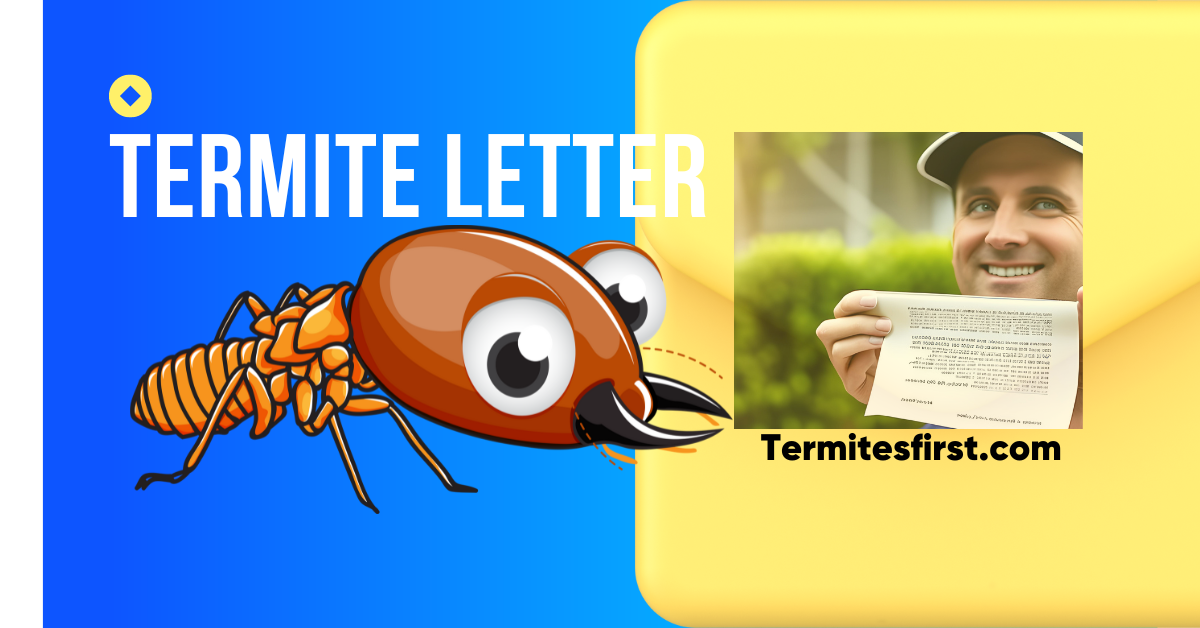
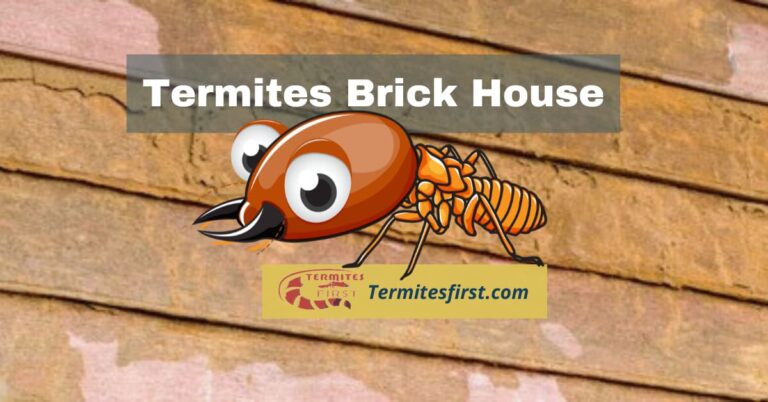


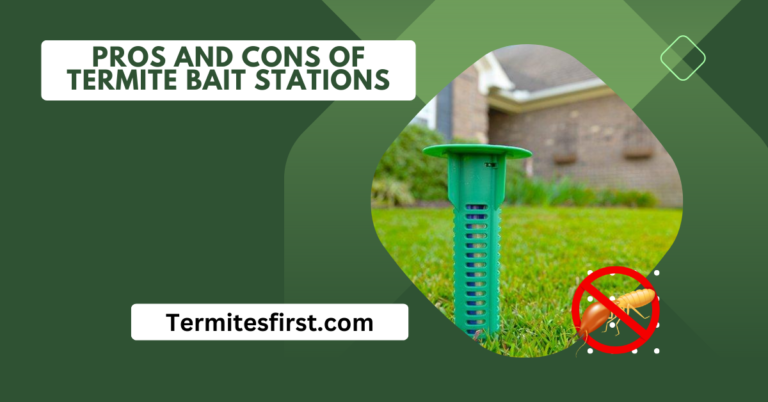
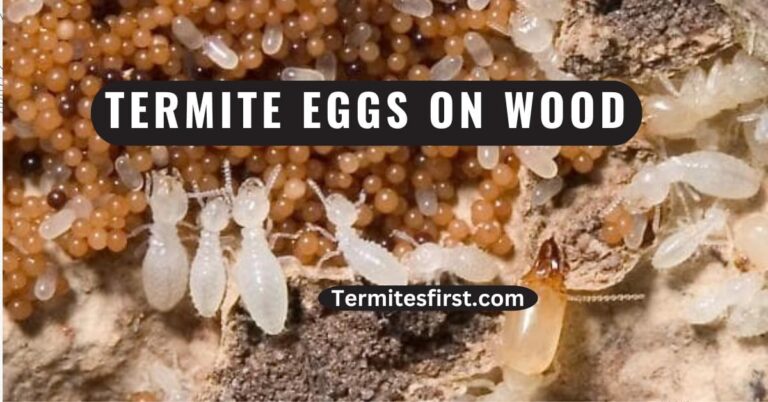
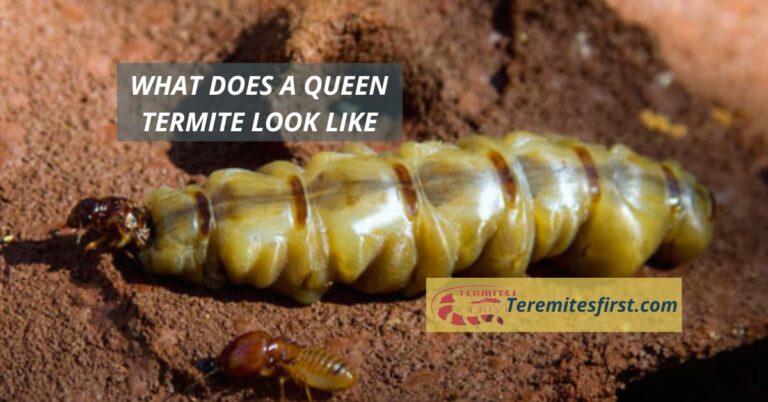
2 Comments